Home

Symptoms & Illnesses

Tracheoesophageal Fistula: Causes, Symptoms, Risks & Treatment
In this Article
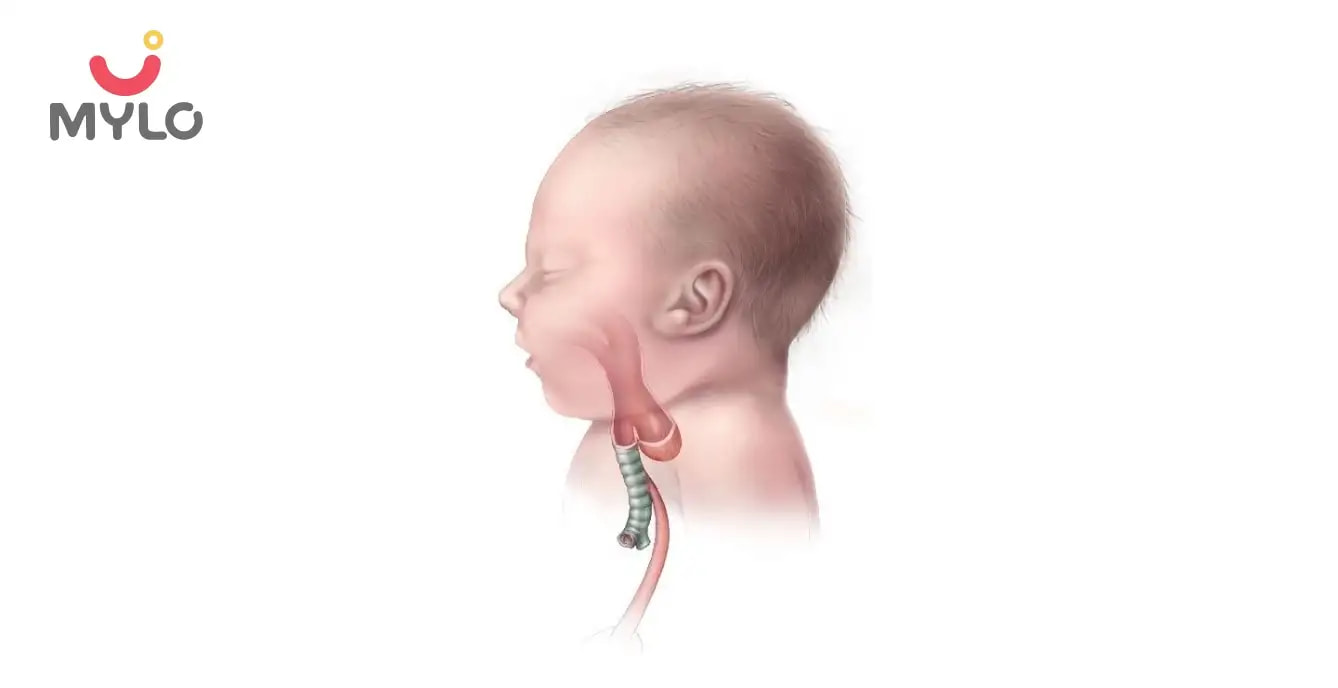
Symptoms & Illnesses
Tracheoesophageal Fistula: Causes, Symptoms, Risks & Treatment
Updated on 15 May 2023
Tracheoesophageal fistula (TEF) is a rare and complex condition that can be a source of worry and confusion for parents, caregivers, and individuals. It refers to an abnormal connection between the windpipe and the food pipe that can cause serious health issues.
However, with the right treatment, the condition can be cured. Being aware of the causes, symptoms, risks, and types of TEF or tracheoesophageal fistula types can help you better understand the condition.
What is tracheoesophageal fistula?
Tracheoesophageal fistula definition: A tracheoesophageal fistula (TEF) is a rare birth defect where a connection forms between the trachea (windpipe) and the esophagus (food tube). This means that food, drink, and saliva can pass into the trachea, instead of going to the stomach.
Who is affected by a tracheoesophageal fistula?
Tracheoesophageal fistula is most commonly found in infants, but it can also occur in adults.
Prevalence of tracheoesophageal fistula
The prevalence of tracheoesophageal fistula is estimated to affect 1 in 2,000 to 3,000 live births. However, due to advances in medical technology and improved screening facilities, early detection and treatment may be possible.
Types of tracheoesophageal fistula
There are five distinct tracheoesophageal fistula types, namely,
1. Type A:
Esophageal atresia (EA) is a condition in which the esophagus is split into two sections, each of which ends in a concealed bag.
2. Type B:
TEF type B is a relatively less common condition in which the top section is attached to the windpipe by a tracheoesophageal fistula and the lower portion terminates in a concealed bag.
3. Type C:
Type C esophageal fistula is the most common form of tracheo esophageal fistula (TEF). It is distinguished by an upper esophagus that terminates in a concealed bag and a relatively low esophagus that is connected to the trachea by the fistula.
4. Type D:
Type D is the rarest form and is when both the upper and lower portions are connected to the trachea by a tracheoesophageal fistula.
5. Type E:
Lastly, type E is when the esophagus is connected to the stomach normally but is connected to the trachea by a tracheoesophageal fistula.
Symptoms of tracheoesophageal fistula
The most common tracheoesophageal fistula symptoms include:
- Coughing or choking during feedings
- Difficulty swallowing or refusing to eat
- Recurrent respiratory infections
- Wheezing or noisy breathing
- Fluid coming from the nose
- Vomiting
- Aspiration pneumonia
- Abdominal pain
- Loss of weight or failure to gain weight
- Bluish skin color due to lack of oxygen
- Swelling of the neck
Causes of tracheoesophageal fistula
The pathophysiology of a tracheoesophageal fistula is complex and the causes can vary.
- It is most commonly caused by a defect in the development of the fetus.
- It can also be associated with other conditions such as Down syndrome, trisomy 18, or CHARGE syndrome.
- Injury to the trachea and esophagus can also lead to TEF. This can include trauma from an accident, medical procedure, or even intubation.
- Rarely, an infection can cause inflammation of the trachea and esophagus, which can lead to a fistula.
- In some cases, malignant tumors can cause TEF.
How is a tracheoesophageal fistula diagnosed?
A tracheoesophageal fistula (TEF) can be diagnosed with a variety of tests, including a physical exam, chest X-ray, barium meal, and esophagogastroduodenoscopy (EGD).
Additionally, a CT scan can be used to diagnose a TEF. It is a type of imaging test that uses X-rays to create detailed pictures of the inside of the body. A CT scan can show the connection between the trachea and the esophagus.
Treatment for tracheoesophageal fistula
Tracheoesophageal fistula treatment depends on the severity of the condition. In some cases, surgery is necessary to repair the connection between the trachea and esophagus. Other treatments may include medications, intravenous fluids, and a tube placed in the stomach to help with feeding.
Apart from these, more effective treatments are being searched for by studying the tracheoesophageal fistula pathophysiology.
Risks of tracheoesophageal fistula
If a tracheoesophageal fistula is left untreated, it can be life-threatening. Besides, tracheoesophageal fistula causes several complications, including:
- Pneumonia
- Dehydration
- Malnutrition
Preventions to take for tracheoesophageal fistula
Unfortunately, there are no known ways to prevent tracheoesophageal fistula. It is important to be aware of the signs and symptoms of TEF and seek medical attention if they are present. Tracheoesophageal fistula management involves close monitoring of the patient along with medical treatments that are tailored to the individual's needs.
How will my baby's tracheoesophageal fistula affect me?
If your baby is diagnosed with tracheoesophageal fistula, it is important to remember that it is a treatable condition. While it may be a stressful and difficult time, the prognosis is generally very good with early diagnosis and treatment. It is important to speak to your doctor or healthcare provider about any concerns that you may have.



Written by
Roohi Kalra
Get baby's diet chart, and growth tips

Related Articles
Related Questions
Influenza and boostrix injection kisiko laga hai kya 8 month pregnancy me and q lagta hai ye plz reply me

Hai.... My last period was in feb 24. I tested in 40 th day morning 3:30 .. That is faint line .. I conculed mylo thz app also.... And I asked tha dr wait for 3 to 5 days ... Im also waiting ... Then I test today 4:15 test is sooooo faint ... And I feel in ma body no pregnancy symptoms. What can I do .

Baby kicks KB Marta hai Plz tell mi

PCOD kya hota hai

How to detect pcos

RECENTLY PUBLISHED ARTICLES
our most recent articles
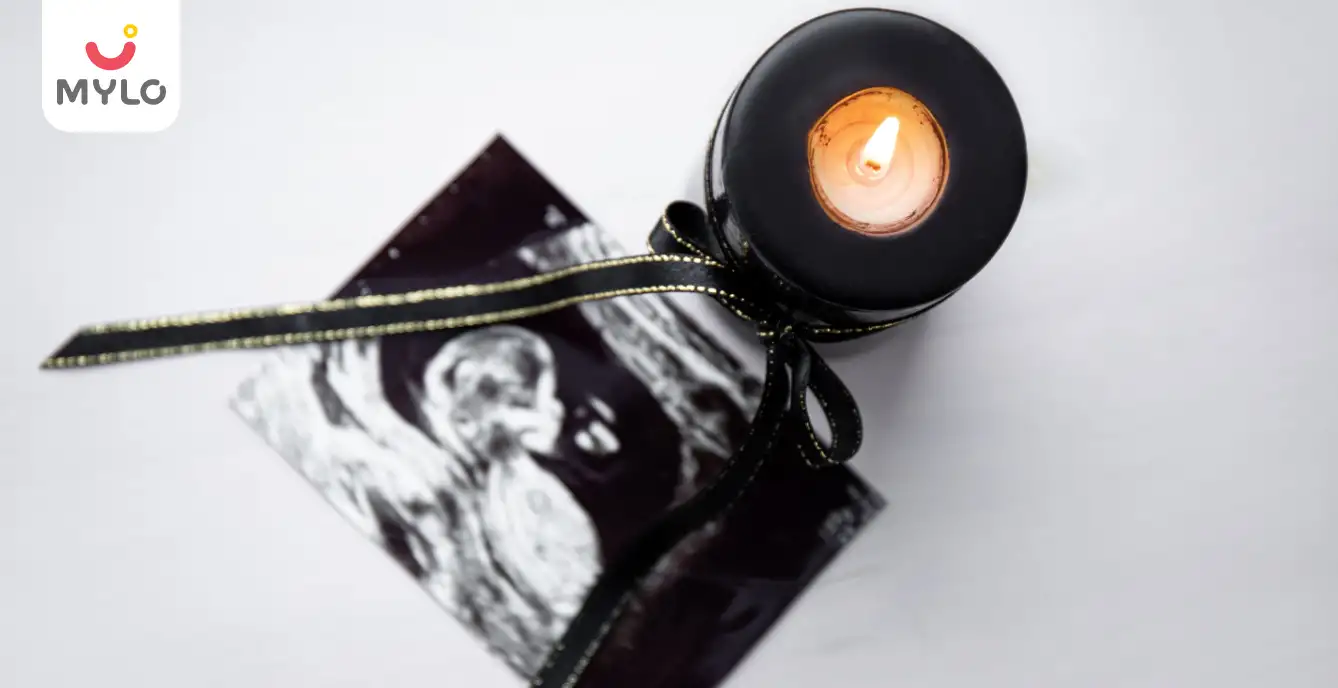
Growth & Development
Stillbirth: Cause, Symptoms, Risks & Prevention
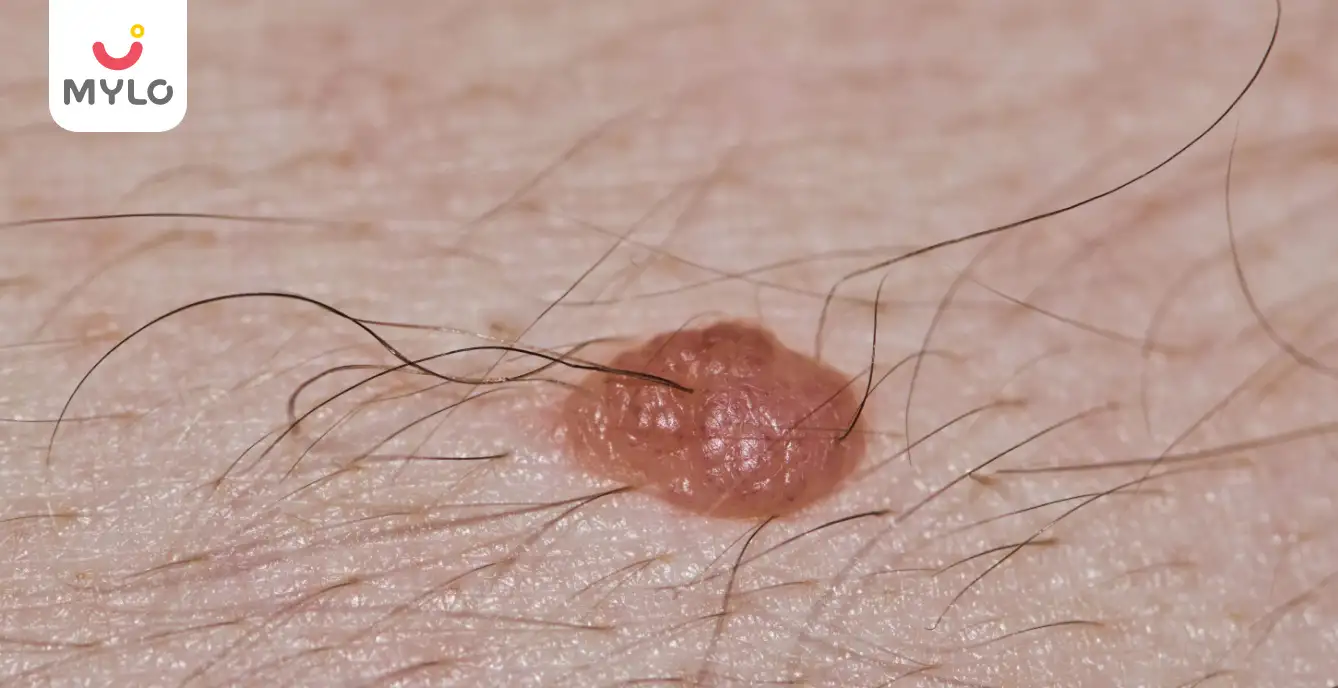
skin care
Giant Congenital Melanocytic Nevus: Causes, Symptoms, & Treatment
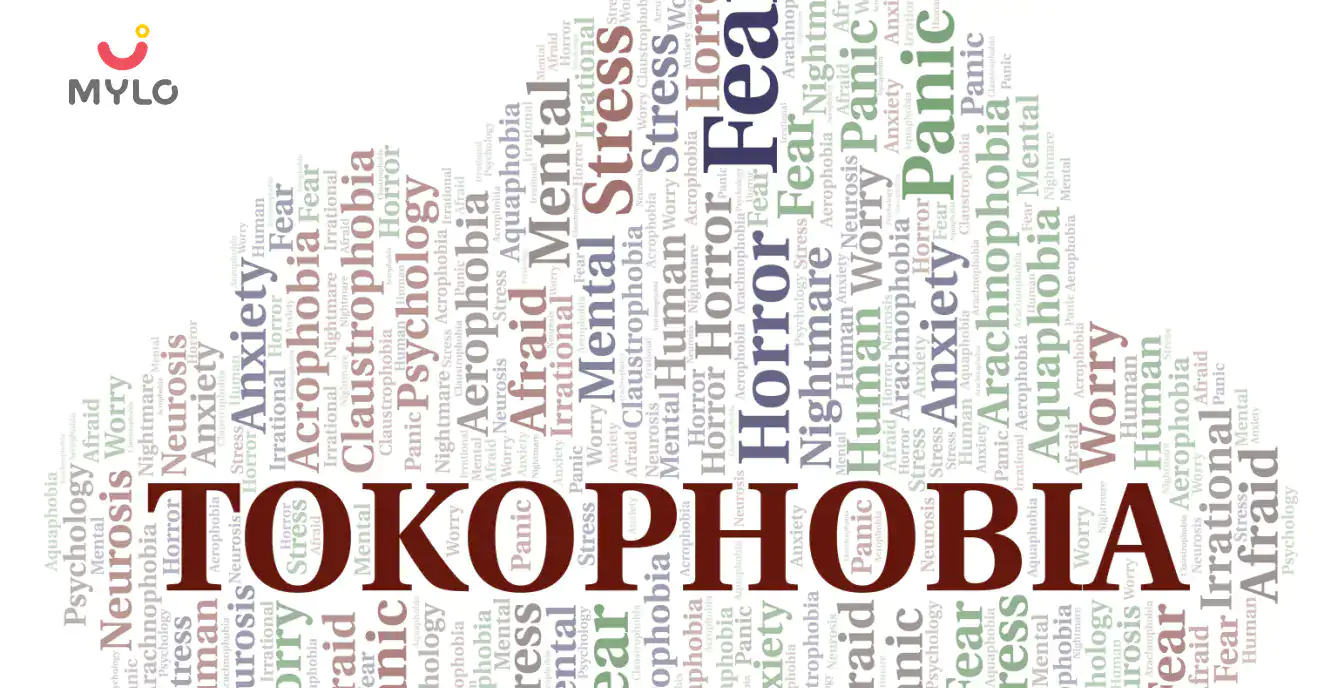
Fears & Phobias
Tokophobia: How to Manage Your Phobia of Pregnancy & Childbirth
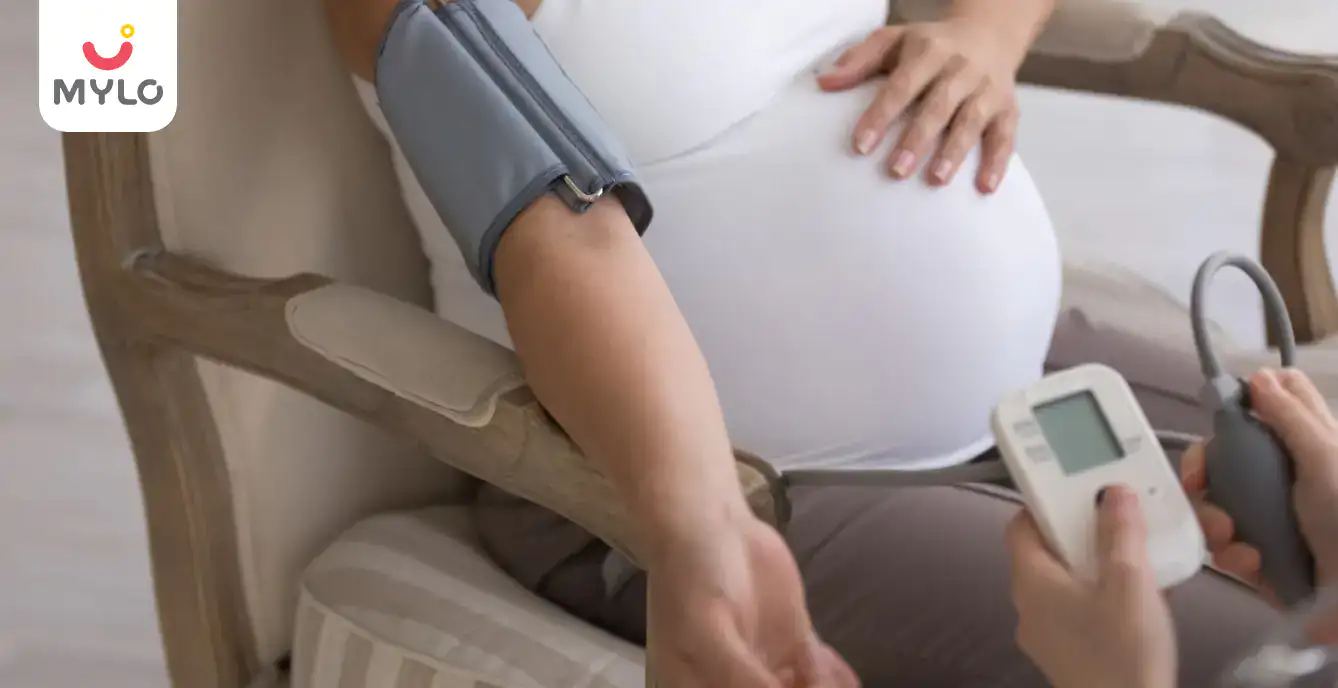
Low BP in Pregnancy: Symptoms, Effects & Treatments
Twins & Triplets
Helping your twins to sleep at the same time
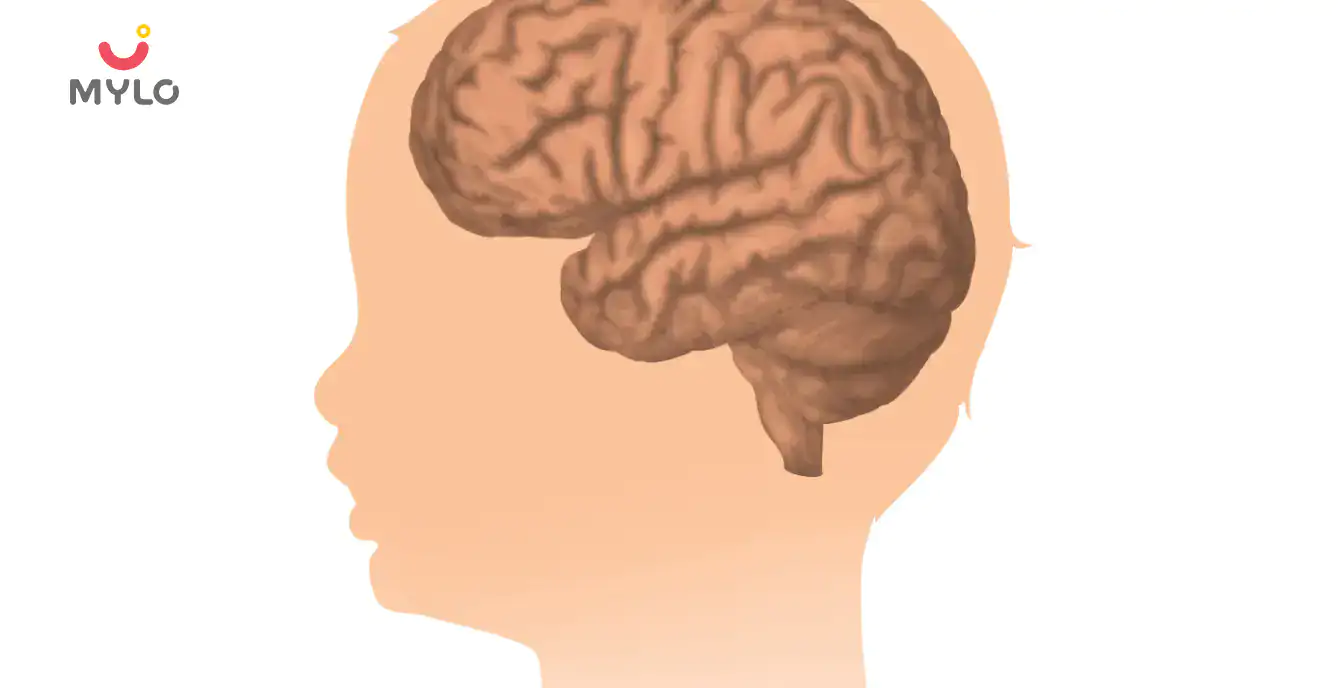
Brain Development
Baby Brain Development: What You Should Know
- Tummy Tuck (Abdominoplasty) Procedure, Risks, Preparation & Recovery
- Spina Bifida: Causes, Symptoms & Treatment
- Diastasis Recti: Causes, Symptoms, Risks & Preventions
- Opioid Overdose, Risk & Prevention
- Is Pregnancy After 35 Right for You? A Comprehensive Guide
- Clubfoot (Talipes Equinovarus): Meaning, Symptoms & More
- RSV (Respiratory Syncytial Virus): Symptoms, Causes & Treatment
- Loose Vagina: Learn How To Tighten Your Vagina Naturally
- Umbilical Cord Prolapse Causes, Symptoms & Treatment
- Bipolar Disorder: Causes, Symptoms, Risks & Treatment
- Sinus Infection During Pregnancy Causes & Treatment
- Intrauterine Growth Restriction (IUGR) in Pregnancy
- APGAR Score: Meaning & How it is Performed
- Dyspareunia (Painful Intercourse): Causes & Treatment


AWARDS AND RECOGNITION

Mylo wins Forbes D2C Disruptor award

Mylo wins The Economic Times Promising Brands 2022
AS SEEN IN
















- Mylo Care: Effective and science-backed personal care and wellness solutions for a joyful you.
- Mylo Baby: Science-backed, gentle and effective personal care & hygiene range for your little one.
- Mylo Community: Trusted and empathetic community of 10mn+ parents and experts.
Product Categories
baby carrier | baby soap | baby wipes | stretch marks cream | baby cream | baby shampoo | baby massage oil | baby hair oil | stretch marks oil | baby body wash | baby powder | baby lotion | diaper rash cream | newborn diapers | teether | baby kajal | baby diapers | cloth diapers |








